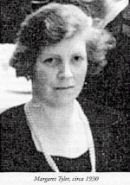“Dulcamara is for affections of damp cold, what Aconite is for the same from dry cold.” Nash.
Causticum [Caust]
Frequent urging, day and night.
Ineffectual attempts to urinate: when a few drops passed, had violent pain in bladder. Urging: had to wait a long time, when only a little passed: urging soon renewed, without pain.
Painful retention, brought on by cold (Aconite). Catarrh of bladder.
Queer symptom, itching at urethral orifice.
Kent says, Causticum has two kin of paralysis of bladder: one of muscles of expulsion, when urine is retained: one of sphincter vesicae, when urine is passed involuntarily.
Again, paralysis of bladder, from over-distension; after having to delay urination.
Post-operative retention.
Sepia [Sep]
Sepia also, may be compelled to keep her mind on the neck of the bladder, or she will lose her urine (Pulsatilla).
Enuresis when coughing, laughing, the slam of a door, or when mind is diverted (Pulsatilla).
Constant urging for a milky urine that burns like fire, and deposits a material hard to wash off the vessel.
Bloody urine, scanty and suppressed: sudden desire, and tenesmus as if uterus would come out.
“Sudden desire with cutting like knives, and chill all over the body.” Kent.
More chronic, and in the Sepia patient.
Indifferent: cold, mentally: no joy in life.
Chilly; sallow: brownish skin. Faint sinking at epigastrium. Wants to get away. and be at peace. (Antithesis of Pulsatilla).
Lycopodium.[Lyc]
Cystitis turbid, milky urine, with offensive purulent sediment: dull pressing in bladder and abdomen. Heaviness in bladder.
Urging to urinate: must wait long before it will pass, with constant bearing down.
Supports abdomen with hands. (Vulva, Sepia)
Urging, children cry out and grasp abdomen.
“Copious red sand in urine, in acute cases: in chronic, when the patient feels best, red sand is found in urine.” Kent.
Involuntary urination in sleep.
Polyuria during the night, though normal or even scanty by day.
Involuntary in sleep.
Passes enormous quantities of urine, very clear and of light specific gravity.
Red sand in the baby’s diaper: the urine causes great irritation where left in contact with skin.
But in the Lycopodium patient; more mental than physical development. Worse 4-8 p.m.
Desire for sweets and hot drinks.
A remedy of great flatulence and fullness after eating but a little.

